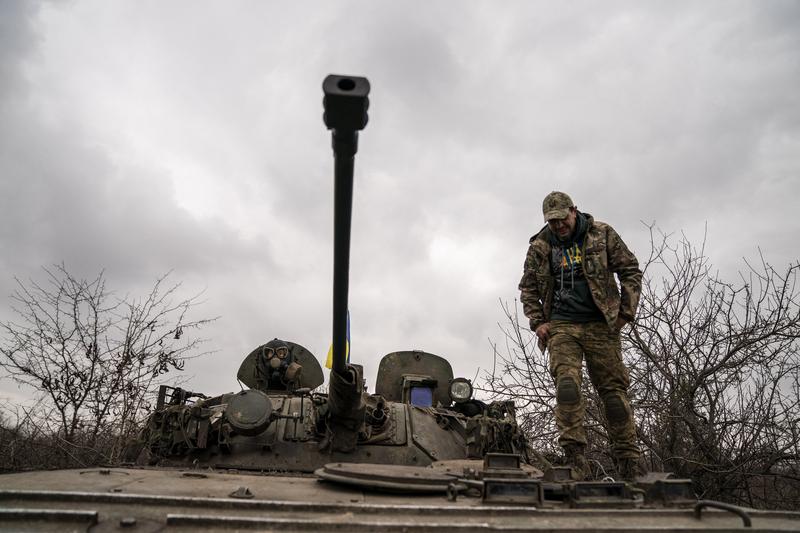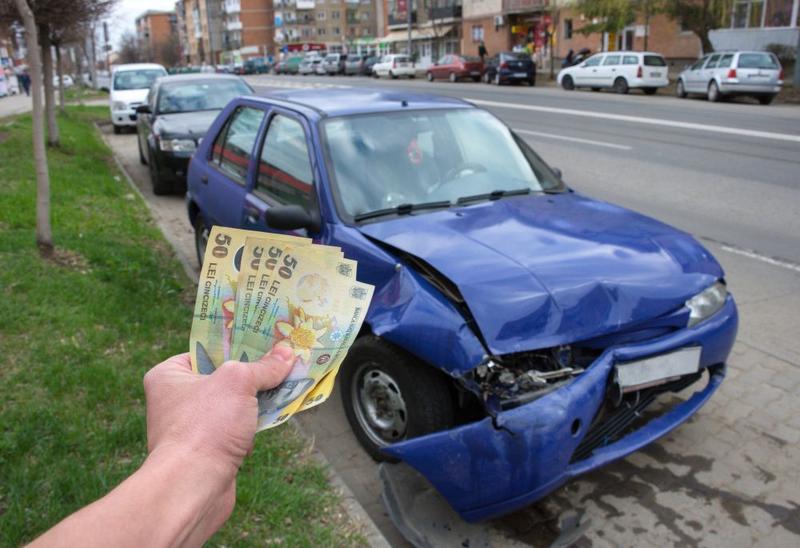Iran is the country of mastery in negotiation, where almost everything, including human relations, is based on parley, says fashion anthropologist Alex Balasescu in an extensive interview for HotNews.ro. He depicts Iran as a place which many in countries such as Romania wrongly see as "absolute enemy" - the cliche imposed by the US Administration. Balasescu also describes Iran as a place where women, while more frustrated than men by the system they live in, are still "the engine" of civil society.
Alexandru Balasescu has the profile of a spy: he speaks English, French, Italian and Farsi. He worked in research and lived in Paris, Tehran, Los Angeles and in Bahrein. He knows people in areas where few Europeans adventure to. Even less can even describe his job exactly: the science of observing people.
Alexandru Balasescu is an expert in fashion anthropology. He has a PhD in anthropology at the University of California and a master in ethnology at the University in Lyon, France. He taught in California, Paris and Bahrain. He won over 10 international grants and received an award from the German Center for European Studies. He's been teaching in Bucharest and worked as an image counselor in Romania's first European Parliament elections in fall 2007. This spring, he launched his book "Paris elegant, Teheran incitant” (Stylish Paris, Inciting Tehran), which compares the fashion and modernity in the two capitals.
Vlad Mixich: You're speaking English, French, Italian and Farsi. You're an anthropologist but also an initiate in fashion theory. You have the profile of a spy. Are you a spy?
Alex Balasescu: You wouldn't know, even if I were. It's true, I've met all sorts of people in my travels, coming from all fields of life and in Iran and Bahrain I had quite interesting contacts with key characters in the region. That allowed me more depth in my observations, which is not handy to anyone here who shows interest in the region of the Middle East. Once there, anyone daring enough can learn things that would absolutely never reach media and stay away from the eye of the wide public.
“Women are Iran's engine”
V.M.: Is it a preconception that Iran is a closed and hard to reach country?
Alex Balasescu: Everything depends on your availability to go there. Should such availability exist, the other would show openness. Iran is like an onion that lets itself peeled, but one would never reach its core. That is because they have a fantastic "diplomacy" that often becomes social norm.
The way to be polite, deferent and tolerant with the other while keeping distance is a social norm that one finds at all levels. From there to the way Iran diplomacy goes there is only one step. It may be amusing for one who knows Iran to watch negotiations over the Iran nuclear issue.
Because many Western diplomats don't know that in Iran patience is a gift. There, patience is not a quality, it just is. The mastery of negotiation there comes from a long and serious history which - probably because of Herodotus among others - has remained largely unknown. What for us and for Herodotus were the great Greek-Persian wars, for Persians were only small incidents at the borders of the empire.
People are very open, at a daily level, because there is this official closure. The comparison with Romania before 1989 may not be too way off. At the time, people coming in contact with a stranger talked only if they were not afraid. There is less fear in Iran, because it is a place trodden by European tourists. What is interesting is that tourists are looking for a traditional, trite, picturesque Iran.
I once met a group of Spanish tourists who have seen all the traditional places and their last night in Tehran I took them to see another Iran. They went to see the meeting places of the young Iranians, in the national park, where one can see transvestites. They were shocked.
V.M.: There are transvestites In Iran...?
Alex Balasescu: Yes! Iran encourages sex change interventions officially because of its policy regarding homosexuality. Homosexuality as social manifestation is forbidden, it is tolerated as a practice - but not under this name. Sexual identity as equal to subjective identity - that is, extracting the personal identity from the sexual preference - is not accepted there.
If personal identity is based mostly on sexual preference, then it would become visible social identity and this is against their rather strict patriarchal social norms.
V.M.: Is the Iranian society willing to "westernize" or rather trying to form a modern, Turkish-style Islam?
Alex Balasescu: Iranians always tried in their modern history - that is, after their 1907 revolution - to modernize and "westernize". The Turkish model was adopted from the very beginning. Of course, they started with men clothing. After the Islamic revolution things went to a radical Islamisation of space, but today, 30 years on, they are experimenting a society with elements of Western democracy combined with elements belonging to Islamic jurisprudence.
What is specific to Iran as compared to other Muslim countries around it is mainly the fact that there is a republic based on Islamic principles and on the principle set by Khomeini: the interpretation of law only by Mullahs, who are graduates of Islamic schools. In this principle there is a possibility to constantly adapt to modern realities.
It is obvious they're very proud of their acquisitions. There is a perception in the West that Western-minded Iranian youth would be pro-American, which is far from true. These young people who are wearing scarves with US flags at parties have a quite developed nationalistic spirit.
V.M.: I would not ask if one can speak of freedom in Tehran, but if such a question would make sense there?
Alex Balasescu: Freedom is a concept with a history behind it and we cannot apply it directly to Iran as it is. There, from our perspective, there is a continuous negotiation of freedom space: what is allowed, in what context it is allowed, in what urban area it is allowed. All these are negotiated continuously.
V.M.: Who is involved in such negotiations?
Alex Balasescu: Negotiation is done individually between parents and children, between women and men, between the members of the civil society and the state institutions. The engine of the Iranian civil society stays in women. There is a continuous negotiations between various pillars of power.
If referring only to the urban level, there are areas where a behavior that we'd call freedom is allowed, but when one leaves those areas, which usually are malls, a more sober behavior is automatically adopted.
It is a society with triple personality. There are things that are not strange to us either, but here they're not imposed by the state. Young Iranians, when leaving these malls, are checked by a sort of bodyguards who verify their pose and dressing code so that they not have problems with the police later.
In taxis some would take profit from this partly-anonymous space and young people would hold hands or become even more tender. Oftentimes I saw police cars passing and warning young people inside: "Why did you touch her like that?" Then negotiation started: "She is my sister". "OK, then, good-bye". Continuous negotiation.
The disaster of the Bush Administration in Iran
V.M.: Are young Iranians reading such restrictions as a burden or are they assuming this kind of values?
Alex Balasescu: Women are more frustrated then men in this system. Young men feel much better with this lifestyle. Many of those I've talked to have also traveled West, but they prefer Iran. The regime is more permissive for men and this is valid from daily life to legal issues. And in legal areas there are many moments when men are favored against women, unfortunately.
But there appears again the possibility of negotiation, even here. However, women are much involved in the society. Since the war with Iraq in the eighties, many young Iranian women have been encouraged to go to college and men were encouraged towards a trading career. Among students, 70% are women for the simple reason that a graduate girl values more on the marital market.
V.M.: Is the marital market still depending on family?
Alex Balasescu: No more than here in Romania and it depends on the social level. But after four years of studies, Iranian women find new horizons imediately and opt not to marry early, but are encouraged to have a career in any field. There is such an official policy of the state. I even saw women rally pilots or having all sorts of suprising jobs.
V.M.: If things go like that, why are women still discriminated against?
Alex Balasescu: It certainly falls in line with the manly interpretation of the Koran. But there is another dimension in Iran: the heritage of Zoroastrianism. For example, the Zoroastrian calendar is the most important for holidays. When the Islamic heritage suits better, it is then used, when the Zoroastrian heritage suits better, then this is used. And it is also valid in the case of modernism.
V.M.: Isn't this behavior leading to deadlocks?
Alex Balasescu: A deadlock is eventually resolved by the fact that Iran is an Islamic Republic. This is the top argument of authority, wich in practice is an patriarchal authority. If we speak of an Islamic authority, then people here would immediately think of something foreign, when in fact it is very well known in Romania as well because this type of patriarchalism also exists here - it is called orthodoxy.
After my first visit to Tehran I returned to Romania and told friends that of all places I visited Tehran was the most familiar in terms of human relations. It is for this very traditional background which here results from orthodoxy and there from Shiite Islam - which both meet in significant points.
V.M.: Please counter three harmful and popular cliches about Iran.
Alex Balasescu: Submissive women dressed in black from head to toe: far from the truth.
Iran as absolute enemy. This cliche has been imediately taken over from the US Administration. It is a mistake that things coming not from Western Europe, but from the United States are taken over in Romania.
A third harmful cliche is that Iran would be a 100% totalitarian state. Very few people in Romania know that there are elections there, despite that candidates must be validated by the defenders of the Revolution.
V.M.: Did you meet a potential terrorist in Iran?
Alex Balasescu: No. The political line in Iran is not in the style of terrorism or al-Qaida because their nationalism is very strong. The youth want to affirm themselves as a nation. Al-Qaida style terrorism is global-network terrorism, it doesn't have to do with any nation and copied on the 21st century political conflict. Meanwhile, nation is very important for Iran.
V.M.: You say that the policies of the Bush Administration towards Iran was a disaster...
Alex Balasescu: The disaster began when Iraq was invaded and the type of negotiation that existed between Iran and the US on the Afghan issue failed to continue. Probably the political reasoning was that by open two fronts, East and West of Iran, these would contain Iran in between and weaken it, leading to a change of regime.
But the contrary happened. Iran gained a huge regional importance that must be considered as such. As long as Iran is not accepted as equal in negotiations with the US Administration, problems will be there. This is the disastrous policy: the policy of non-dialogue.
And one more thing: the Bush Administration supporting the Saudi regime - a regime which beats the records of Islamic fundamentalism in the region. The US propaganda mixes conflicting factions, putting Hamas, Hezbollah and al-Qaida in the same pot. And there is also an incapacity to understand the internal dynamics between the Sunni and the Shiites.
---
V.M.: What determined you to start studying Islam? You say Sheiks are not paying you, so should we understand you had a Persian girlfriend?
Alex Balasescu: You're close with the second statement. I studied in Los Angeles, where two million Iranians live. You're bound to meet one and I met several and it is a fact that I had a girlfriend who spoke nicely about Iran. Everybody talks nicely about Iran.
In the US, Iranians don't say they're Iranians since the hostage crisis, but say they're Persians. In Iran, on the other hand, there is a huge jealousy mixed with contempt among upper classes in Tehran towards those who migrated to California. I then watched the "scarf affair" in France and from there it was one more step to studying the whole body esthetics combined with urbanism.
---



















